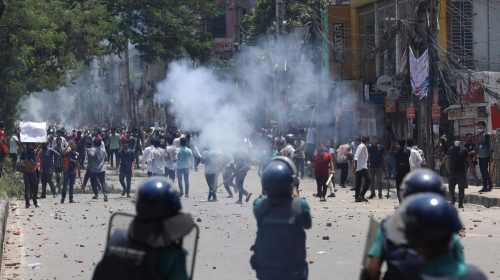The Bangladesh-Myanmar border has witnessed a recent incident where more than 100 Myanmar Border Guard Police (BGP) personnel illegally crossed over on February 4-5. The Border Guard Bangladesh (BGB) promptly disarmed and interned them. Moreover, southeastern Bangladesh is currently under constant threat from the Myanmar forces, facing attacks such as gunfire, mortar attacks, and gunship strikes. This ongoing conflict between the Myanmar government forces and the insurgent Arakan Army in Rakhine and Chin States poses a significant security risk to Bangladesh.
When we delve into the history of these two nations, it becomes evident that Bangladesh and Myanmar have had a complex and strained relationship. Over the years, there have been numerous instances of ethnic Rohingya being expelled from northern Rakhine State into Bangladeshi territory since 1978. Myanmar forces have also violated Bangladesh’s land, maritime borders, and airspace, while incidents of Bangladeshi troops and civilians being killed by Myanmar’s border forces have further strained the relations between Dhaka and Naypyidaw. Additionally, Myanmar’s territorial ambitions concerning Bangladeshi territory have occasionally caused tensions between the two countries.
The situation in Myanmar has taken a dangerous turn, evolving from a civil war to an intrastate conflict. Previously, the clash involved only ethnic armed groups, but now the common people are actively supporting these groups. This new development indicates that the war is transforming into a ‘people’s war’, with continuous backing from the masses.
As a neighboring country, Bangladesh cannot escape the implications of the ongoing turmoil in Myanmar. One significant concern is the spillover effect of such conflicts. Currently, there is a looming possibility of an influx of refugees from Myanmar. However, the real worry lies in the active involvement of non-state parties like the Arakan Army, who may exploit the Myanmar-Bangladesh border for their own interests. This poses a grave national security threat to Bangladesh.
It is crucial for Bangladesh to address this situation promptly and effectively. By taking proactive measures to secure its borders and closely monitoring any potential threats, Bangladesh can safeguard its national security and prevent any further complications arising from the conflict in Myanmar.




















